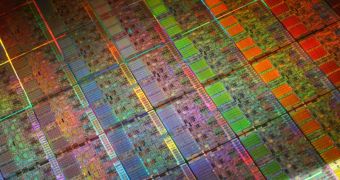No doubt, consumers know very well of Intel and AMD's plans to launch six-core processors for the consumer front in the coming months. These end-users, however, might not be up to speed with the developments on the enterprise front, where 8-core chips and even 12-core processors are already set and ready. With Advanced Micro Devices already shipping its 12-core Magny-Cours, Intel is gearing up to officially release its 8-core Xeon server processors later this month.
Multi-core processors with more than two or three cores are not exactly widespread on the consumer market. This is not only because quad-cores are more expensive, but also because there are relatively few applications capable of taking advantage of them.
On the enterprise front, however, the situation is quite different. Servers, data centers and supercomputers always process a large number of parallel tasks, which makes multiple cores especially effective, even more so when they are designed with HyperThreading. The upcoming 8-core Xeons will be able to run in four-socket servers and, by leveraging the two threads of each core, the logical CPU count can reach 64 cores on a single system.
This high scalability is complemented by 256KB L2 dedicated cache memory for each core, a shared L3 cache of 24MB and even Turbo Boost technology, which can disable unused cores in order to safely and effectively boost the heavily used ones. The 8-core also has a memory controller with four DDR3 memory channels and is built on the 45nm HKMG process (it is based on the Nehalem architecture).
The 8-cores will make their official debut later this month. In addition, Intel is preparing to formally add its Westmere-EP processors around the same time. These will be based on the 32nm Westmere process and will likely have six cores (aimed at two-socket servers), a 12MB L3 cache and three DDR3 channels.

 14 DAY TRIAL //
14 DAY TRIAL //